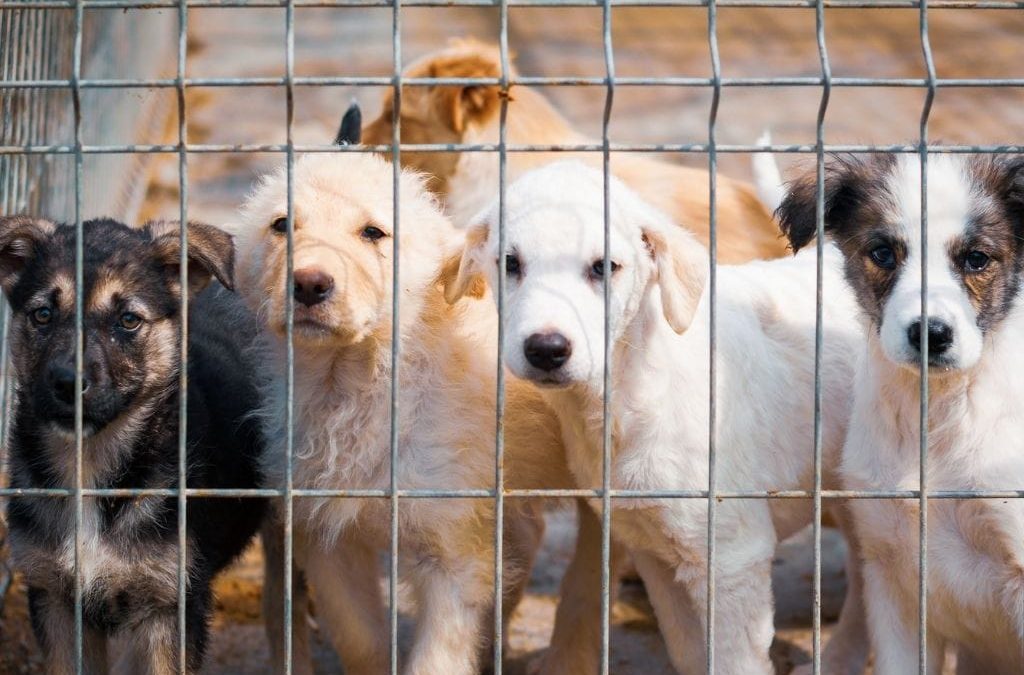So, you’re thinking about adopting a rescue dog. That’s awesome! Every year over 3 million dogs will enter a shelter. Less than 50% of the dogs that enter a shelter are adopted and about 20% are euthanized.
With intake rates at such high levels, many shelters struggle to find homes for these dogs and it’s great that you are considering adding a rescue dog to your family.
What You Should Know About Adopting a Rescue Dog
Most did not end up in the shelter because of behavior.
Behavior is sometimes a reason why a dog ends up in a shelter but it’s not the most common reason. The biggest reason people have to give up their pets is because of housing issues. They may be forced to relocate because of a new job and move into a new apartment building that doesn’t allow pets or has restrictions on the types of pets allowed. It’s only a small number of shelter dogs that end up being returned due to behavior issues.
Each rescue dog is unique.
Just like us humans, no 2 dogs are exactly alike. They are all individuals and have very different personalities. Most shelter facilities do a good job of evaluating each dogs health and behavior. They will often provide you with information on the dog’s behavior so you understand any challenges your pet may have and how you will need to cope with those challenges. Be sure to ask lots of questions and get to know the dogs at the shelter before you decide to bring them home.

Separation anxiety is common.
Being left alone in a new home can be a scary for dogs just like humans. Sometimes they may howl or bark, have “accidents” inside, chew things up or pace the floor. If the problem is mild try giving your dog a special treat each time you leave, leave some recently worn clothes out that smell like you, and try to make your leaving and coming home uneventful. It may be tough but try to ignore your pup for the first few minutes after you get home.
Start with training right away.
Training has to start as soon as they get home. Set your dog’s boundaries from the start. What are they allowed to do and what is off limits? Be ready to correct unwanted behavior and reward good behavior. Also, make sure your dog gets to know and trust you and knows their name before letting them off the leash in a park or a dog exercise area. Your dog may run off, get overwhelmed or act aggressively toward other dogs. If you feel like you need help with training, find a reputable facility like The Dog Nest with professional trainers .
They’ll need time to adjust.
All dogs need to adjust to a new home whether they are a shelter dog or purchased from a breeder. You’ll need to expect an adjustment period. This adjustment could take hours or it could take months. Your dog will need to get used to his new environment and a new schedule. Don’t be surprised if you see some of the following behaviors.
- Timid or Shy
- Hiding
- Separation anxiety
- Barking for no obvious reason
- Possessiveness
- Regression in training
- Marking their territory
In most cases, you will have very few if any behavior issues but every dog has its own personality just like people.
Things to Consider for Unwanted Behaviors

Consider crate training your dog.
This will provide a safe space for your dog and allow you to leave your dog at home without fear of them getting into things they shouldn’t.
Get your dog lots of exercise.
Exercise is a great stress reliever for dogs just like it is for us. Get your dog outside to play and exercise. This is a great treatment for anxiety. Exercise is a great stress reliever for dogs just like it is for us. Get your dog outside to play and exercise. This is a great treatment for anxiety.
Stay calm and be a strong, confident leader for your dog.
Dogs can feel the stress of others around them. Managing your stress can have a huge impact on your pet’s well being as well as your own.
Know this… you will be a rockstar and a hero for your adopted rescue dog. They will become a part of your family and a part of your life that you will always cherish. Thank you.

